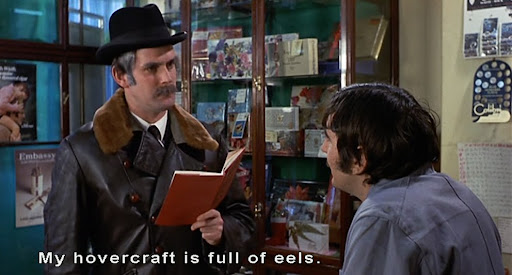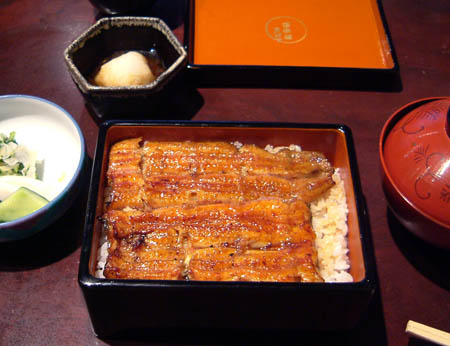
Posted on 12/05/2016 3:40:15 PM PST by Lorianne
TOKYO -- The glass eel trade is coming under international scrutiny.
Already, cultured eels account for more than 99% of the world's supplies. But the farming of these eels is totally reliant on elvers born in the wild.
Although techniques to create artificial breeders to allow for the full cultivation of eels have been established, commercial production, as in the case of tuna, remains impossible.
A big problem is that much of the glass eel trade essentially takes place in the dark. In Japan, the Fisheries Agency calculates the volume of the country's eel catches by subtracting the amount of imported baby eels from that of domestic procurement.
But the volume of domestic eel catches widely differs from the combined calculations of domestic catches done by prefectural governments, which issue the necessary permits.
In the fishing season of 2015, for example, 18.3 tons of baby eels were procured domestically, while 3 tons were imported. The volume of eel caught domestically thus came to 15.3 tons. But data from prefectural governments, once tabulated, puts the total amount of domestic catches at 5.7 tons.
The difference suggests that eel farms received 9.6 tons of glass eels from shadowy sources.
The moonlight jackpot
The phenomenon is not temporary; these wide disparities have been present at least since the 2011 fishing season.
When the agency studied the matter, it discovered these underlying factors: Baby eel catchers want to avoid attracting attention, preferring to keep the true size of their catches secret out of fear of giving away particularly good fishing spots. Catchers are selling to unofficial traders, who offer higher purchase prices than designated buyers. Poaching.
Fishery cooperatives handle most of Japan's fishing operations. But this is not the case with baby eels. Cooperative members do some of the baby eel catching, but regular citizens -- hobbyists or people looking for a second income, for instance -- are responsible for a large part of it. Prefectural governments offer these fishers special permits.
This system is probably attributable to the difficult, nocturnal work that goes into netting glass eels, each weighing less than a gram.
A Japanese internet search of "glass-eel fishing" brings up a large number of results, some promising a "Jackpot via moonlighting! 200,000 yen ($1,760) per night."
Prefectural governments issued permits to a total of 4,701 concerns with a combined workforce of 21,420 in the 2015 fishing season, according the Fisheries Agency.
Some prefectures designate businesses that are allowed to collect baby eels and those that are allowed to wholesale them. More than 20,000 fishermen and 486 farming concerns have been granted these designations.
Not all prefectures follow this system, and not everyone involved in the eel trade has been approved. People familiar with the business point out that the high prices baby eels can fetch have enticed crime syndicates.
They're the same problem
There are also questions about imports. Japan gets all of its imported baby eels from Hong Kong, despite the fact that no elvers are fished there. These baby eels are probably smuggled from Taiwan, which does not permit glass eel exports, or China, which is unlikely to officially authorize such shipments.
In 2012, Japan, South Korea, China and Taiwan launched a resource management program for the Japanese eel. The program is under a framework of the Asia-Pacific Economic Cooperation forum. Before it began, there was no international mechanism to control eel resources.
But the program has yet to develop an effective preservation method, mainly because of China's reluctance to control the supply of baby eels to farms in the vast country.
China is reportedly discontent with Taiwan, which it considers a renegade province, having a presence at an international conference.
With this kind of squabbling, those shipments from Hong Kong are likely to continue.
Meanwhile, an international symposium was held on Nov. 10 in the lower house of Japan's parliament. The discussion focused on protecting both fishery resources and the fishing industry from illegal fishing operations. Kenzo Kaifu, an associate law professor at Chuo University, said Japan's shady baby eel supplies -- unreported domestic catches and imports combined -- accounted for 70% of all supplies in the 2015 fishing season.
Of every 50 eels offered at an eel shop, "almost none" are supplied in a proper manner, Kaifu said.
The risk is global
In the rest of the world, poaching and the absence of reporting are seen as the same problem. Not in Japan.
The concept of IUU fishing -- illegal, unreported and unregulated fishing -- has taken hold at international deliberations.
The U.N.'s Food and Agriculture Organization in 2001 adopted an action plan to prevent, curb and eliminate IUU fishing. In 2010, the European Union introduced a policy to do the same.
The EU warns countries suspected to be involved in the practice and bans the distribution of fishery products -- even processed ones -- that result from IUU practices. However, these bans only take effect if the countries under suspicion show no progress in addressing the matter.
Other international bodies are tuning into the eel problem. The International Union for the Conservation of Nature and Natural Resources has designated the Japanese eel as an endangered species. It has also noted that IUU fishing of glass eels makes it difficult to properly analyze and manage fishery resources.
At a meeting in South Africa in September and October, the Washington Convention adopted a proposal from the EU to examine the trade of eels indigenous to various parts of the world and to study ways of persevering them.
The convention has placed European eels under control, prompting European countries to ban exports of them. But illegal trafficking of glass eels continues.
The EU's proposal deserves attention. It does not limit the subject to European eels, realizing that tough restrictions only on eels from one region would put populations elsewhere at risk. In the past, the decimation of the Japanese eel threatened the survival of European eels. This is why measures to preserve all eel populations must be studied.
On the EU's bad side
In Japan, the Shizuoka prefectural government has decided to act alone. It is threatening anyone who poaches, transports or possesses glass eels without first notifying authorities with prison terms and other strict punitive measures.
There are also local governments in Japan seeking to revise ordinances to prevent crime syndicates from entering the business.
But to save eel populations, these kinds of measures need to be taken on a national level.
Incidentally, at the latest Washington Convention meeting, a resolution was adopted to protect African elephants from poachers. The resolution calls on countries to close their domestic markets to any suspected illegal trading of ivory.
The adoption was unusual since the convention, designed to regulate international trading, rarely tries to make its presence felt in domestic markets.
But perhaps the convention needs to be this aggressive more often. After all, lax oversight allows poachers to thrive and some species to decline.
In the case of eels, it might want to make its presence felt in Japan.
One other note: Japan could also find itself on the EU's bad side. The bloc could issue the country a warning on IUU fishing of elvers, then slap a ban on all fishery imports from Japan.
Slippery slope.
Which eel to choose?
Eelie, meelie, mylee mo, catch an feelie by the toe...
Sorry, couldn’t resist.
Bought my mother and sister eel-skin purses the first time I was stationed in Korea.
Eel pizza
I’m assuming these eels are for consumption. I had sushi yesterday and the eel nigiri was incredible.
He butchers and cures them (how's that for an oxymoron?) in his own smoke house to ship world wide.
He gets to successfully live the mountain hippie lifestyle with minimal fuss.
Lol. I like my pizza plain, though a BIT of salami on the top wouldn't kill me.
Fish and cheese...eeewwwww!
An old friend of mine had a brother doing the same thing with wild ginseng root.
Interesting, after doing a little research I find that glass eels are the exact same creature as the eels that I catch from time to time in the Ohio River. They are “glass eels” until they enter fresh water. I was aware of their life cycle but didn’t know they were the same eels eaten around the world and used for sushi.
I’ve eaten eels from the river here and they are delicious. No wonder the sushi is so good.
I LOVE sushi and sashimi. I guess, then, that I WILL eat eel.
I believe this controversy revolves around getting product for the legendary Japanese eel dish...unagi.
One legendary Japanese chef opened an impossibly elegant Japanese restaurant in Paris.
Parisians flock there to have one dish.....the unagi.
I strongly recommend it. The eel nigiri was the best part of a fantastic meal. I hadn’t eaten sushi before this year and now I can’t get enough. I can understand why people turn their noses up to it, but they are just denying themselves great food.

Surprised to not see any reference to the US. Only 2 states allow the export of baby eels (called elvers), Maine and South Carolina. Here in Maine it is tightly controlled. Native Americans get permits and a small quota of others are allowed to fish (net) for them.
This make the business very valuable with elvers fetching $2,000 per lb with no processing cost (unlike sea urchins that are opened and meat removed before shipping).


Unagi served in a Japanese LACQUERED bento box---so elegant.
There is no significant eel fraud. It is a myth.
Disclaimer: Opinions posted on Free Republic are those of the individual posters and do not necessarily represent the opinion of Free Republic or its management. All materials posted herein are protected by copyright law and the exemption for fair use of copyrighted works.